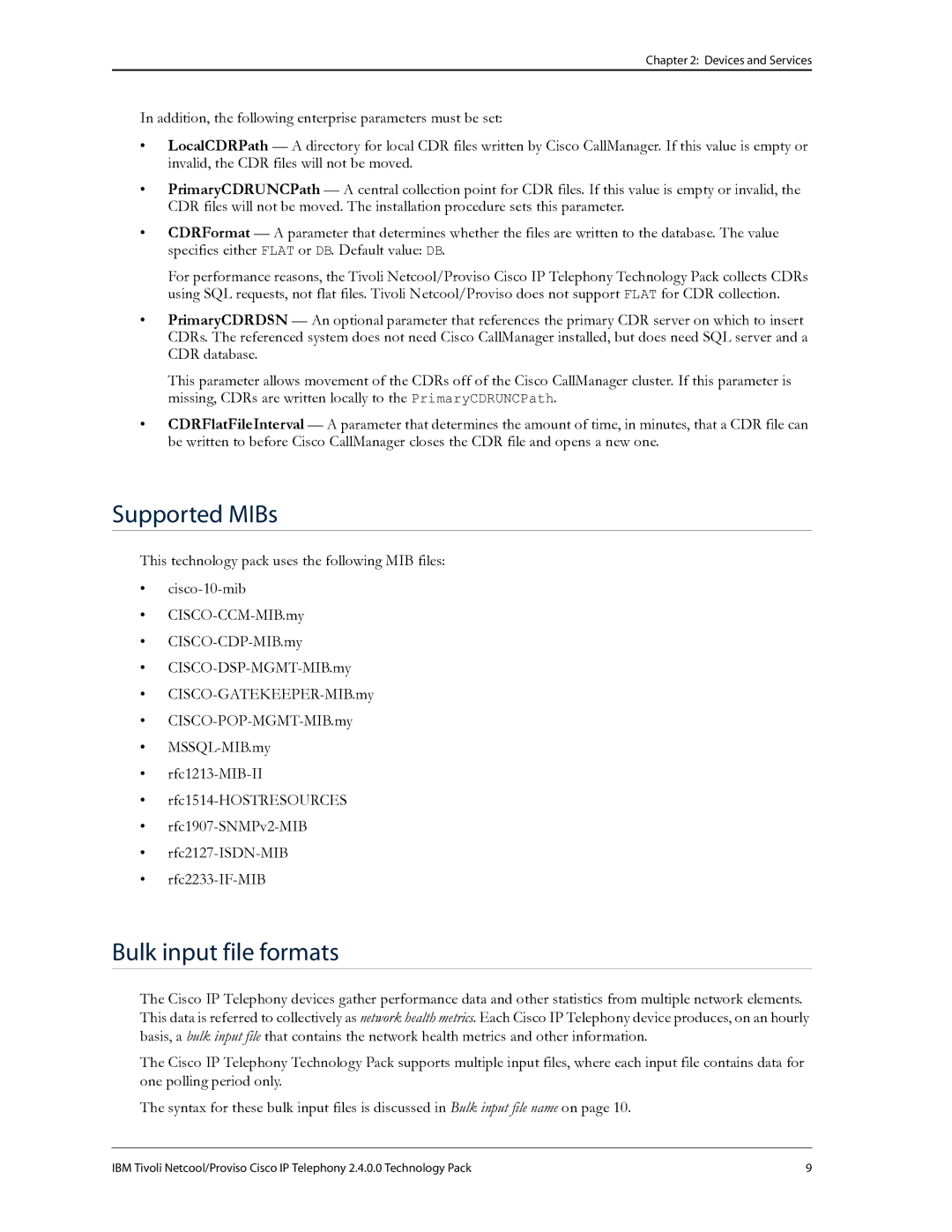
Chapter 2: Devices and Services
In addition, the following enterprise parameters must be set:
•LocalCDRPath — A directory for local CDR files written by Cisco CallManager. If this value is empty or invalid, the CDR files will not be moved.
•PrimaryCDRUNCPath — A central collection point for CDR files. If this value is empty or invalid, the CDR files will not be moved. The installation procedure sets this parameter.
•CDRFormat — A parameter that determines whether the files are written to the database. The value specifies either FLAT or DB. Default value: DB.
For performance reasons, the Tivoli Netcool/Proviso Cisco IP Telephony Technology Pack collects CDRs using SQL requests, not flat files. Tivoli Netcool/Proviso does not support FLAT for CDR collection.
•PrimaryCDRDSN — An optional parameter that references the primary CDR server on which to insert CDRs. The referenced system does not need Cisco CallManager installed, but does need SQL server and a CDR database.
This parameter allows movement of the CDRs off of the Cisco CallManager cluster. If this parameter is missing, CDRs are written locally to the PrimaryCDRUNCPath.
•CDRFlatFileInterval — A parameter that determines the amount of time, in minutes, that a CDR file can be written to before Cisco CallManager closes the CDR file and opens a new one.
Supported MIBs
This technology pack uses the following MIB files:
•
•
•
•
•
•
•
•
•
•
•
•
Bulk input file formats
The Cisco IP Telephony devices gather performance data and other statistics from multiple network elements. This data is referred to collectively as network health metrics. Each Cisco IP Telephony device produces, on an hourly basis, a bulk input file that contains the network health metrics and other information.
The Cisco IP Telephony Technology Pack supports multiple input files, where each input file contains data for one polling period only.
The syntax for these bulk input files is discussed in Bulk input file name on page 10.
IBM Tivoli Netcool/Proviso Cisco IP Telephony 2.4.0.0 Technology Pack | 9 |
